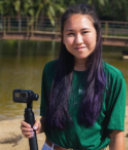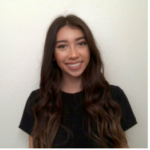Session Description
Geographical, mapping skills are becoming nonessential with the increasing use of global positioning system (GPS) applications. Consequently, future generations might experience loss of geospatial, cognitive reasoning. The solution is to update the andragogy by which the instruction is delivered. Thus, three sequential, instructional modules were collectively designed to teach neo-cartographic creation via the use of a web-based mapping application.
The constructivism learning theory was applied, allowing students to build upon past and newly gained knowledge. Over seven days, 39 (n = 39) undergraduates completed a pre-instructional survey that gauged learning retained from elementary instruction. Next, they worked Part 2 to assess 1) comprehension of detailed instruction; 2) achievement of geospatial cognitivity, and 3) the experience of both Parts by way of neo-cartography instruction. Lastly, they completed a post-instructional survey to share feedback about the module.
Ninety-two percent (92%) reported never having used a mapping application to chart travel logistics but would choose to do so in the future. Furthermore, 87% replied that this instruction is necessary with one participant stating, “…because technology is not always a reliable resource.”, and that mapping fundamentals should not become obsolete for fear of propagating a geospatially ignorant population.
We need not relinquish traditional instruction to the conveniences of digital mapping applications. Rather, andragogical instruction of mapping fundamentals must change to incorporate contemporary, digital instructional tools.
Presenter(s)
 Lynn Erdmann
Lynn Erdmann
Learning Design and Technology (LTEC)
College of Education/University of Hawaii at Manoa
Lynn Erdmann is a proud alumna of Indiana University’s Tourism, Convention and Event Management degree program where, since 2016, she has “given back” in the role of associate instructor delivering distance education in “Tourism Geography.” As a result, she was nominated for the school’s inaugural “2018 Excellence in Teaching Award.”
In 2015, Lynn’s wanderlust led her and her husband Edward (Ed) to take up permanent residence on the beautiful island of Hawaii where she is began pursuing her M.Ed. degree through the Learning Design and Technology (LTEC) program at the University of Hawaii at Manoa. It is also from here that she enjoyed the role of Instructor and Program Coordinator for the Hospitality Program of Hawai’i Community College during the 2018-2019 academic year before having to return to her home state of Indiana in October 2019

 Elle Nakamura
Elle Nakamura Jesse Joseph
Jesse Joseph Barth "JR" Baron
Barth "JR" Baron Carol T. Edwards
Carol T. Edwards Aiman Khamitova
Aiman Khamitova Thanh Truc Nguyen
Thanh Truc Nguyen Ku‘ulei Serna
Ku‘ulei Serna Janet Breckenridge
Janet Breckenridge Kimiko Smith
Kimiko Smith Kelley Ho
Kelley Ho Marie-Theres Whitehead
Marie-Theres Whitehead Junghye Fran Choi
Junghye Fran Choi